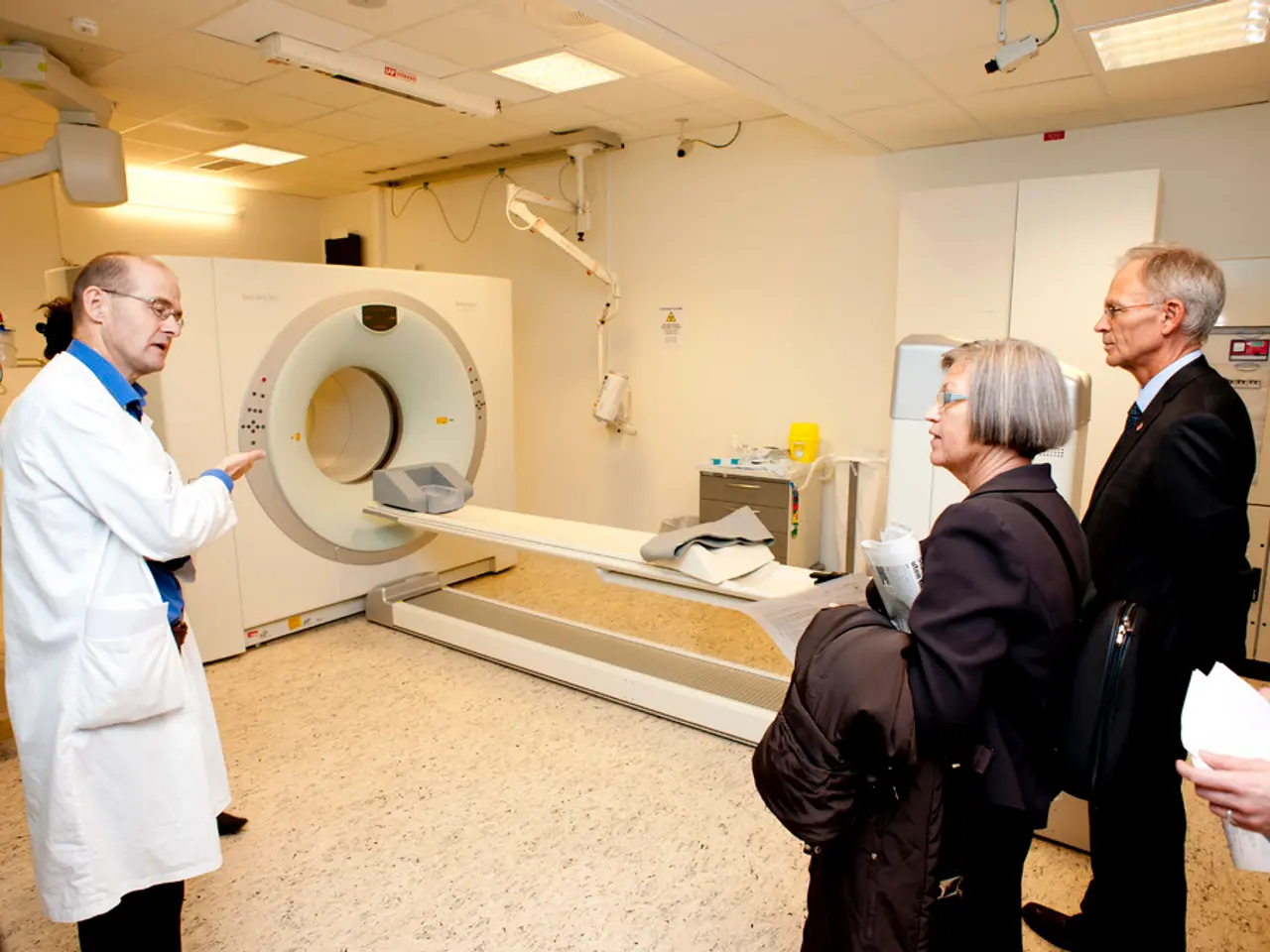NASA and Google Collaborate on AI-Powered 'Cosmic Physician' Tests
The Crew Medical Officer Digital Assistant (CMO-DA), an AI-powered medical assistant developed by Google and NASA, is set to revolutionise healthcare in space and potentially on Earth. This innovative system is being tested as part of NASA's Artemis campaign, a mission aimed at establishing a long-term presence on the moon and paving the way for future missions to Mars.
The AI space doctor's potential reach is much broader, providing quality medical care in remote or underserved areas with limited access to healthcare professionals. It is designed to offer medical support during communication gaps, a crucial feature for space missions where communication lags can range from 3 to 14 seconds one-way to the moon, and up to 44 minutes round-trip on a mission to Mars.
Initial results show the AI could deliver "reliable" diagnoses based on reported symptoms. It is trained on spaceflight data and uses natural language processing and machine learning to give astronauts timely, data-driven guidance for managing medical issues during missions. The AI space doctor has undergone preliminary trials in which a panel consisting of doctors and an astronaut evaluated its performance in simulated medical scenarios.
The AI space doctor is also being tested for missions to the moon, Mars, or farther out. It will be useful if the medical officer is the one with a health problem, offering an additional layer of support during extended space missions. The AI space doctor is being further tested with medical doctors to enhance its accuracy and reliability.
Lessons learned from the AI space doctor project could be applied to Earth-based healthcare, potentially improving medical care in remote or underserved areas on our planet. The AI Digital Health Assistant concept is portable to Earth-based applications, offering a promising future for telemedicine and remote healthcare services.
Google and NASA are working with medical experts to refine the system's accuracy and decision-making. The Objective Structured Clinical Examination (OSCE) is used to measure the AI doctor's performance, a method typically used for assessing the skills of medical students and professionals according to the National Institutes of Health.
There is no confirmed launch date for the AI space doctor yet. However, its development and testing are happening during NASA's preparation for the Artemis campaign, which aims to set up its first long-term presence on the moon and is part of NASA's plan to explore the moon for scientific discovery, technology advancement, and lessons on living and working "on another world as we prepare for human missions to Mars."
Read also:
- Understanding Hemorrhagic Gastroenteritis: Key Facts
- Stopping Osteoporosis Treatment: Timeline Considerations
- Tobacco industry's suggested changes on a legislative modification are disregarded by health journalists
- Expanded Community Health Involvement by CK Birla Hospitals, Jaipur, Maintained Through Consistent Outreach Programs Across Rajasthan








